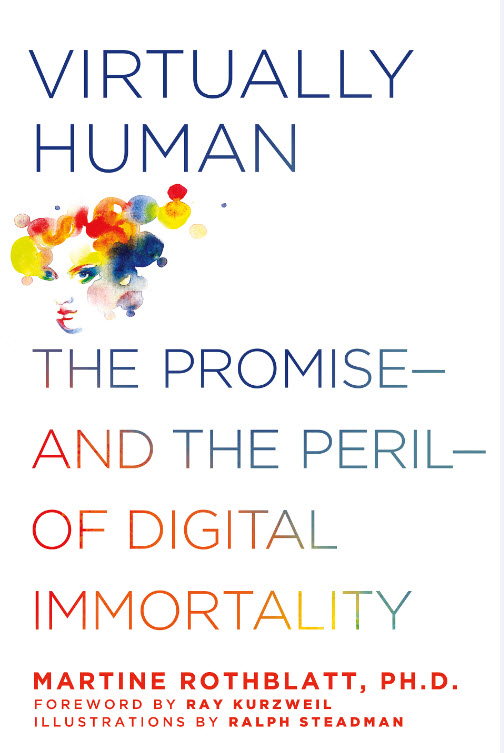Virtually Human: The Promise and the Peril of Digital Immortality
September 7, 2014
- author |
- Martine Rothblatt, Ray Kurzweil
- year published |
- 2014
 Virtually Human explores what the not too distant future will look like when cyberconsciousness — simulation of the human brain via software and computer technology—becomes part of our daily lives. Meet Bina48, the world’s most sentient robot, commissioned by Martine Rothblatt and created by Hanson Robotics. Bina48 is a nascent Mindclone of Martine’s wife that can engage in conversation, answer questions, and even have spontaneous thoughts that are derived from multimedia data in a Mindfile created by the real Bina.
Virtually Human explores what the not too distant future will look like when cyberconsciousness — simulation of the human brain via software and computer technology—becomes part of our daily lives. Meet Bina48, the world’s most sentient robot, commissioned by Martine Rothblatt and created by Hanson Robotics. Bina48 is a nascent Mindclone of Martine’s wife that can engage in conversation, answer questions, and even have spontaneous thoughts that are derived from multimedia data in a Mindfile created by the real Bina.
If you’re active on Twitter or Facebook, share photos through Instagram, or blogging regularly, you’re already on your way to creating a Mindfile — a digital database of your thoughts, memories, feelings, and opinions that is essentially a back-up copy of your mind. Soon, this Mindfile can be made conscious with special software — Mindware — that mimics the way human brains organize information, create emotions and achieve self-awareness.
This may sound like science-fiction, but the nascent technology already exists. Thousands of software engineers across the globe are working to create cyberconsciousness based on human consciousness and the Obama administration recently announced plans to invest in a decade-long Brain Activity Map project. Virtually Human is the only book to examine the ethical issues relating to cyberconsciousness and Rothblatt, with a PhD.